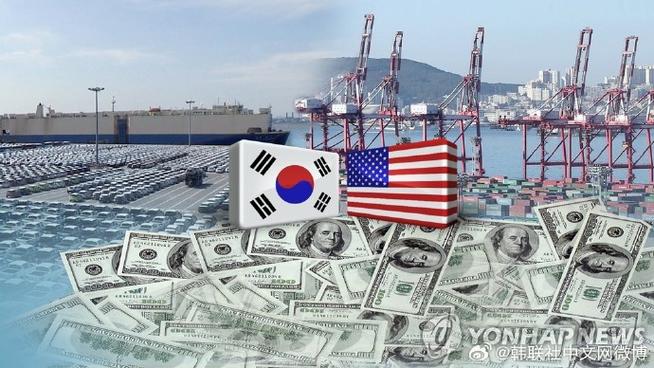
Yonhap news agency, “Joongang Ilbo” and other South Korean media reported on the 21st, South Korea and the United States began the second round of tariff negotiations in Washington on the 20th local time, three days of “Technical consultations” on a number of core issues, including so-called “Reciprocal tariffs”, Non-tariff barriers to trade and trade imbalances. The report said the talks were one of the key trade policies being pursued by the Donald Trump administration after it returned to the White House, in the context of an enhanced “Made in America” strategy. With South Korea about to hold a presidential election, the talks are not only a matter of bilateral economic and trade relations, but are also seen as an important test of the two countries’ old and new policy lines and strategic orientations.
South Korean government delegation with the U. S. Trade Representative’s office (USTR) and other U. S. departments on the“July tariff package agreement” technical consultations. This is the second round of dialogue on tariff issues following the first meeting in April. During the first round of talks, the two sides agreed to reach a“Package agreement” on issues such as the withdrawal of US tariffs on South Korea and bilateral industrial cooperation before a 90-day suspension of so-called“Reciprocal tariffs” expires on July 8. The negotiations focus on six areas, including trade balance, Non-tariff barriers to trade, economic security, digital trade, rules of origin and improving the business environment.
There are clear differences between the two sides on the issue of tariff relief, particularly on the so-called“Reciprocal tariff” measures and the conditions attached to them. South Korea is concerned about the high us tariffs of 25 per cent on imports of steel, aluminium and some car products, particularly the so-called“Reciprocal tariffs”. South Korea hopes the talks will lead to deep cuts in US tariffs and offers to use strategic industrial co-operation, greater imports of great beauty products and balanced bilateral trade as bargaining chips. South Korea’s Ministry of Industry, trade and resources said it would emphasize the importance of strategic industry coordination in the indo-pacific region, represented by shipbuilding and semiconductors, in an effort to persuade the United States to accept the phased tariff relief.
But the prospects for talks are not good. The US has demanded that South Korea remove a series of “Non-tariff barriers to trade”, including restrictions on beef imports for more than 30 months. The US Treasury Secretary warned on the 18th that the so-called“Reciprocal tariffs” announced on April 2 would be restored to trade partners who had been less than forthcoming in the tariff negotiations. South Korean media said, although not named South Korea, but the comments are widely seen as pressure on the current negotiations.
According to Yonhap news agency quoted negotiators as saying that South Korea hopes to complete the framework agreement before the expiry of the tariff buffer on July 8, but whether the United States will accept the South Korean timetable remains uncertain.
South Korea faces its 21st presidential election on June 3rd. South Korean public opinion generally believes that the end of the term can be finalized with the U. S. tariff results, will become an important measure of the current government’s economic diplomacy.